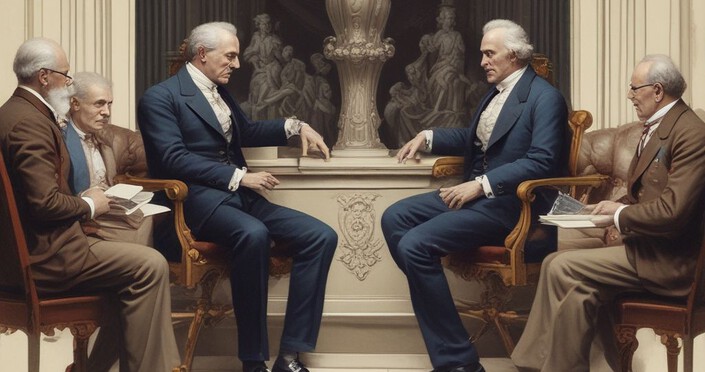Categorical Imperative

Categorical Imperative by Kant
Categorical imperative is the supreme principle of morality and it can also be defined as the unconditional principle that individuals must follow without the desire of the nature. Kant’s categorical imperative is concerned with moral actions. Categorical imperative justifies the moral requirements and makes clear that the actions which violate the categorical imperative are immoral and irrational. The fundamental principle states that the law of CI is autonomous and the moral duties comes from hypothetical imperative which commands human being to have a rational will and make it be a universal law. Writers who offer philosophy assignment help at Edudorm essay writing service notes that this general rule helps human being to act according to the decisions made on moral law. In categorical imperative, human being develops good will concepts which deserve self-esteem. To do this, duty concept is required for specific subjective. Kant asserts that in order to understand the categorical imperative, it is important to differentiate morality from empirical consideration. This will help to admit the law that moral actions must follow the moral law. Morality should become a universal law through creating an objective ethic or else the morality should be a prior assumption.
Principles of Self-Imposed and Principles of Guiding Action in Categorical Imperative
Kant’s categorical imperative has contingent ideas that the human knowledge comes from self-determination and autonomy. Categorical imperative applies both the principles of self-imposed and principles of guiding action (Bowen 37). The general principle requires a cognitive generalization for guiding the conducts. In ethical dilemma, Kant asserts that the only way to solve an issue is to get involved with a good will without considering the action consequences. Despite the misfortune which may occur, the good will provides the thoughts that the actions done is right even if the results are desirable. The important aspect of categorical imperative is that people should take their duties and treat other peoples as ends. Kant asserts that “Act only on that maxim whereby thou canst at the same time will that it should become a universal law” (Bowen 37). Experts who offer philosophy essay help at Edudorm essay writing service indicates that to understand this, he asserts that an act becomes a categorical imperative by having a sense that the action is good. This brings about the idea of “action universalization”. Thus, the moral act creates a universal law because in its nature, it is the right thing to do. In natural law, categorical imperative acts as the guiding principle and helps one to make out whether the action is right or evil (Bowen 38). It is clear that having a good will leads to moral action because people will be desired to do what is right despite the outcome. The good will in itself has the conception law which guides them in treating other persons as inherently valuable. The ethical theory focuses on duty-ethics which helps people to understand the importance of behaving morally not for scholarly sense but in solving moral dilemmas (Bowen 38).
Need for Pure Ethics in Categorical Imperative
In categorical imperative, Kant asserts that there is need for pure ethics which comes from morally good actions. In addition, good actions must be done as a duty but not for pleasure which emerges from non-moral motive (Paton, 24). Every person should have a philosophy of duty and moral principles which will lead to the right path. The purpose of the ethical philosophy is to maintain the pure principles which at times may be disguised by pleasure. In acting morally, it is important to distinguish between the pleasures motives and moral motives. These contain both moral and non-moral motives which may lead to confusion in categorical imperative (Paton, 25). It is important to understand that pure ethics comes from moral experience. There is no connection between moral ethics and moral judgment simply because the judgment already appears as a prior element of an ordinary individual. Moral actions require a maxim to avoid the presence of quiescent. Authors who offer dissertation research assistance services at Edudorm essay writing service points that using maxim in categorical imperative, people tends to apply rational order to support their basic goals. In order to produce better results, people weigh the difference and similarities and by so doing they evaluates the actions which will help them to achieve the fundamental objectives. Kant asserts that every person who uses categorical imperative has a personal duty and while performing the duty he or she is guided by moral rules (Paton, 25). In categorical imperatives, Kant asserts that “…everyone must grant that a law, if it is to hold morally, that is. As a ground of obligation, must carry with it absolute necessity…” (Kitcher, 560). People should develop a moral system and understand that there is a moral law which rational being should follow in order to be regarded as morally right. In performing the duty, every person is guided by a moral law. In morality, moral law must apply so as to distinguish between the good from the evil. In this case, Kant ties law with moral precepts and defines the law as ‘object-level law’ of human being. He illustrates the law and states that actions are beyond the law and if the law is present, it is bounded with conformity and universal law (Kitcher, 560).
Motive of Duty in Categorical Imperative
Kant introduces the motive of duty in categorical imperative and asserts that a good thing can be termed to be good if it is only done from good will. On same note, good will must be contributed by the concept of the duty since the duty will produce the human morality as well as the compulsion. In addition, the good will have some qualities which facilitates the good actions. Self-control and passion comes from the inner worth of human being although without qualification they be may be evil (Kitcher, 557). It is important to note that a good will becomes good by virtue. To eliminate the difficult which exists in imperative of morality, Kant asserts that unconditional imperative constrains the human will of doing what is right. Tutors who offer dissertation consulting at Edudorm essay writing service acknowledges that the imperative produces rationality since the actions has logical contents. It is important to note that it is not possible to show categorical imperative simply because the people have the obligation to do what is right without desired end. Categorical imperative arises when people have the capability and they are motivated to do their duties with respect to the moral law (Kitcher, 557). Moreover, categorical imperative cannot be illustrated by form of example because people carry out their duties with good will. Thus, respect of moral, rational will and good will contributes to the categorical imperative. Categorical imperative necessitate maxim and universal law since it is a single act made by maxim.
Moral Metaethics
Moral metaethics in categorical imperative introduces the moral principles which create the universal law. Kant has a unique standpoint which is based on the ideas that human being should use humanity while doing personal or people’s thing and use the actions as an end (Kitcher, 558). Unlike the utilitarianism which is based on the rule that bad results are contributed by bad point of view on doing the action, Kant asserts that maxim which creates the universal law will always contribute to better results (Kitcher, 558). Mentors who offer sociology dissertation help at Edudorm essay writing service recognizes that Kant relies on his ideas that every person has a duty as well as an obligation to act morally with respect to moral laws. When carrying out the moral duty, people should have reasoning and self-governance in solving a moral dilemma (Kitcher, 558). The important thing with categorical imperative is that it deals with morality and personal choices. Categorical imperative says that people should do the right thing and avoid the wrong things. By making moral choices and universal law, it is easier to do what is right by understanding the consequences of a good and evil.
Conclusion
Categorical imperative is a moral obligation to do what is right. Every person should do a perfect duty and one should develop a discipline of guiding the natural abilities. Human being ought to express the ultimate ethical respect and hold morality view. It is important to follow the golden rule of categorical imperative and derive personal self-interest for all people. Instructors who offer dissertation writing guide at Edudorm essay writing service argues that principles of universalizability and human dignity should be applied in making maxim action, as these are the concepts of the moral law which will help to follow the universal law. Every person has moral self-perfection and to gain self-perfection, one should follow the principles of categorical imperative in order to act on maxim and act on moral worth. Human being form natural law through finding universality and inevitability by the use of enlightenment. Thus, natural law becomes the central part of human morality which is characterized by neutrality and justice.
Works Cited
Bowen, Jonathan L. Categorical Imperative of a Confucian Evil Demon in America: A Compilation of Essays in Philosophy. S.l.: Iuniverse Com, 2005. Print.
Kitcher, Patricia. “Kant’S Argument for the Categorical Imperative.” Nous 38.4 (2004): 555-584.
Paton, H J. The Categorical Imperative: A Study in Kant’s Moral Philosophy. Philadelphia, Pa: University of Pennsylvania Press, 1999. Print.


